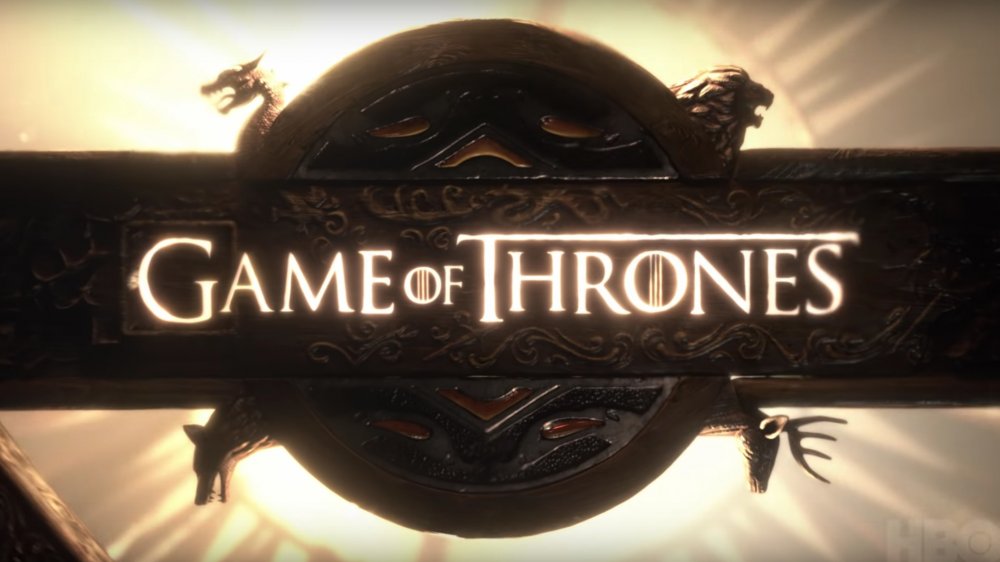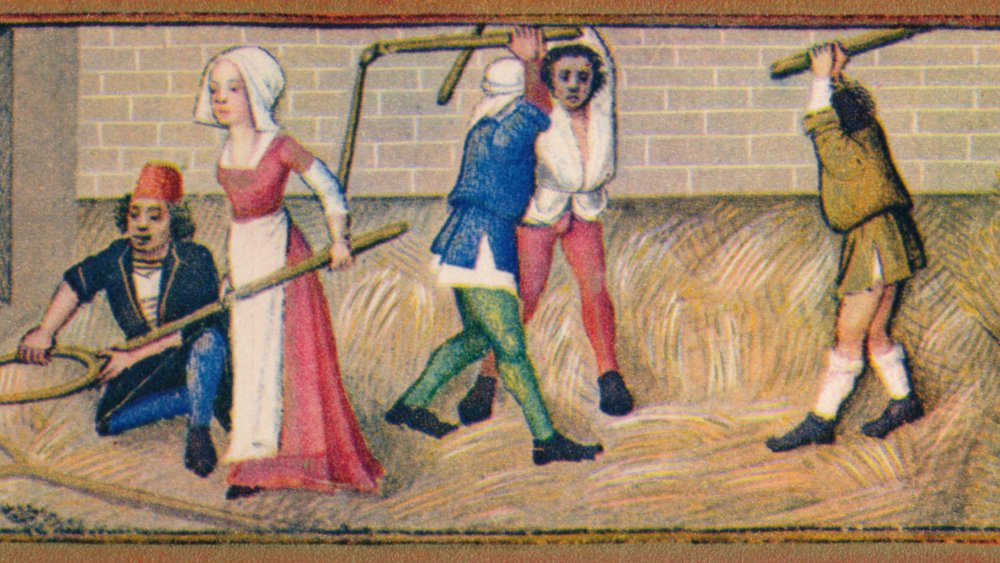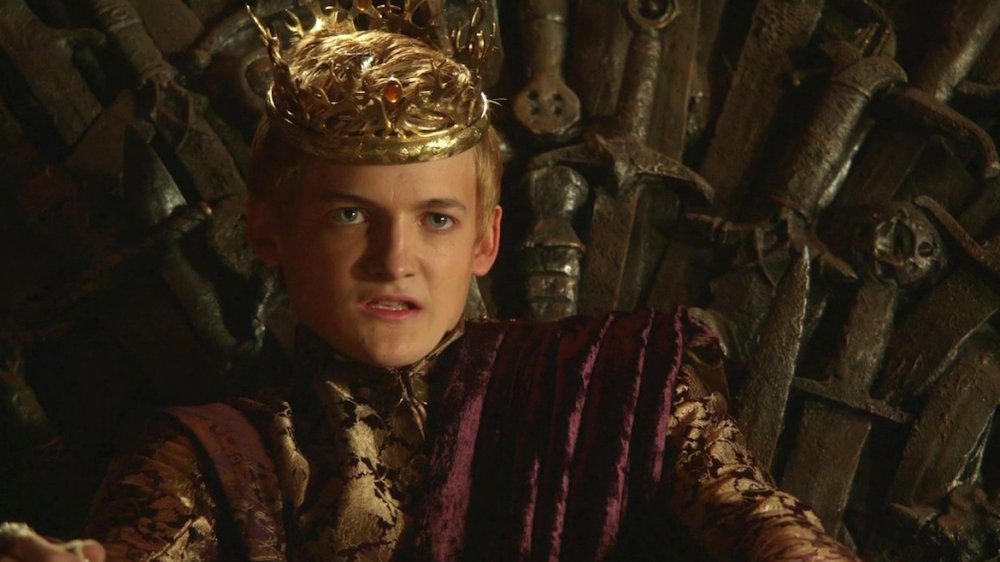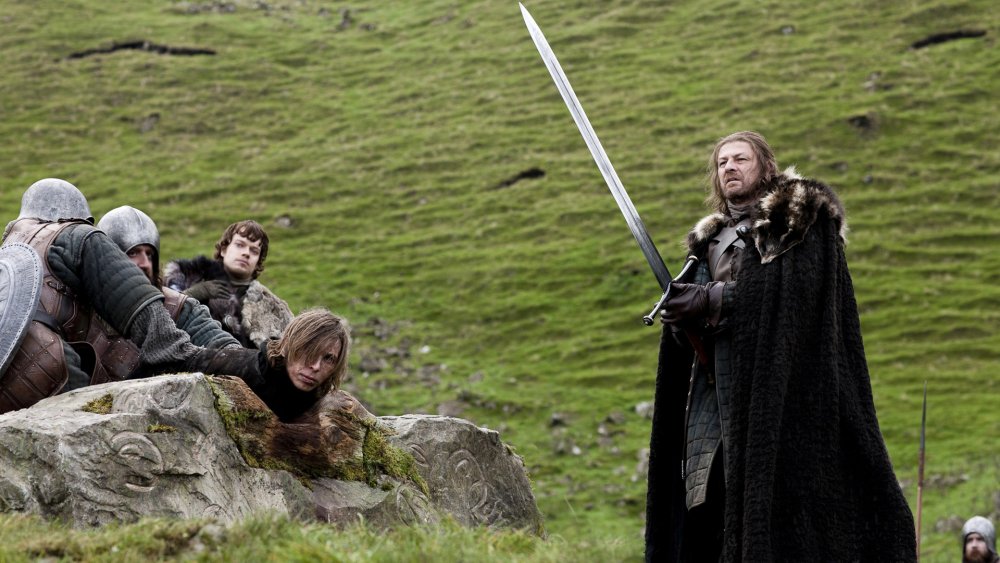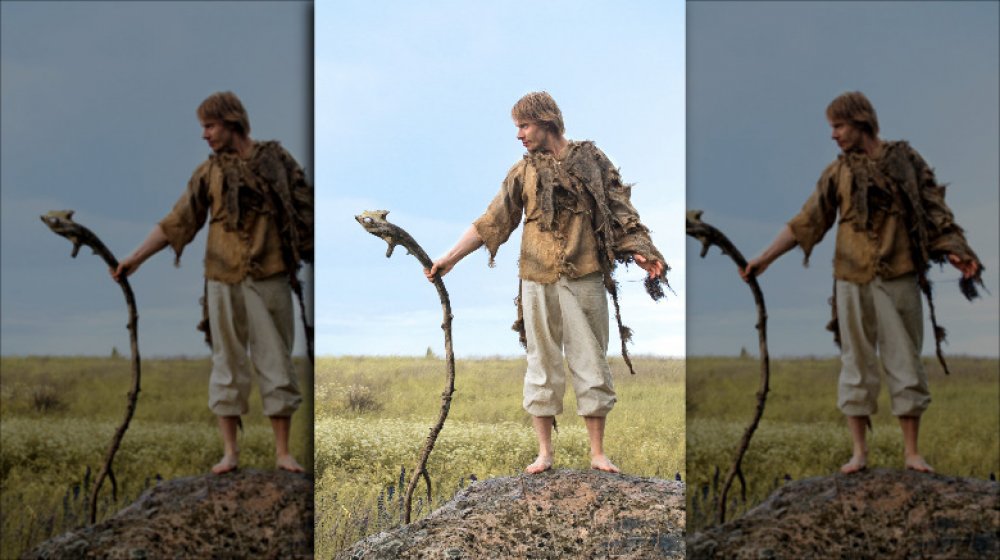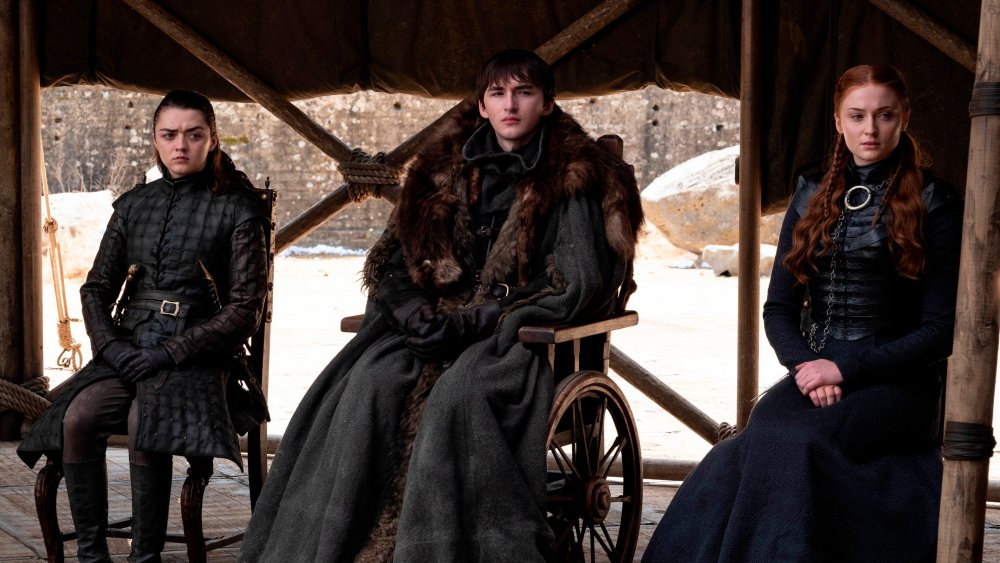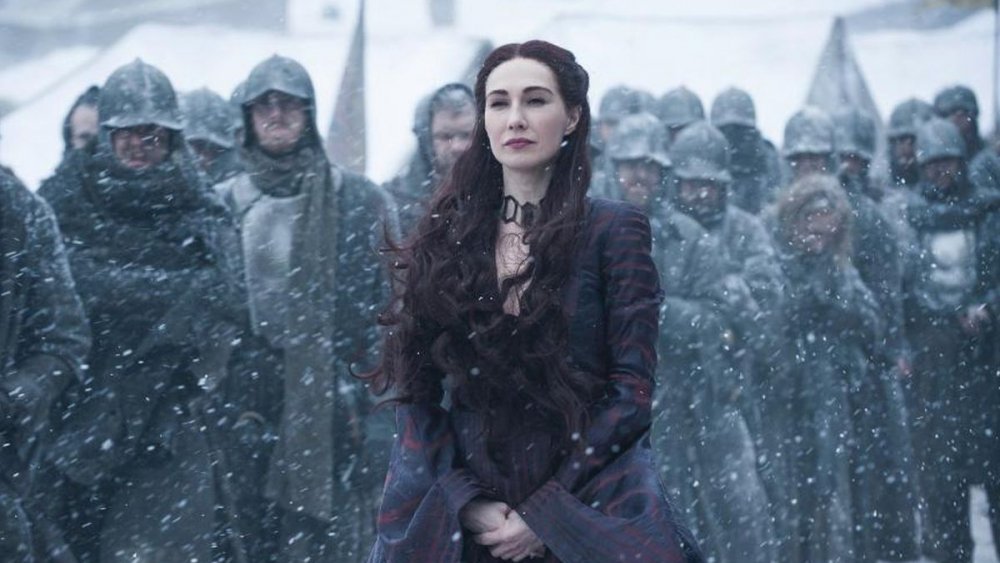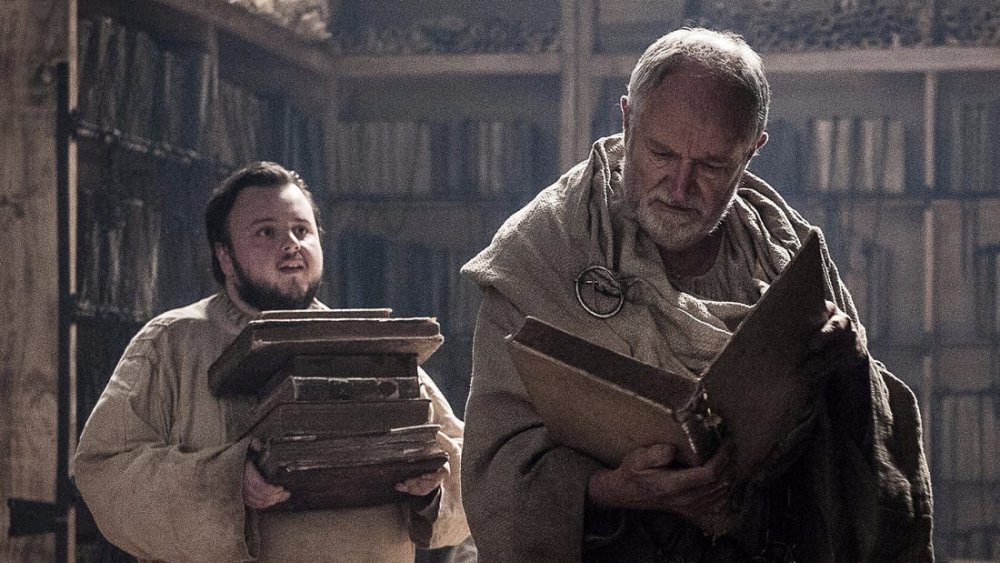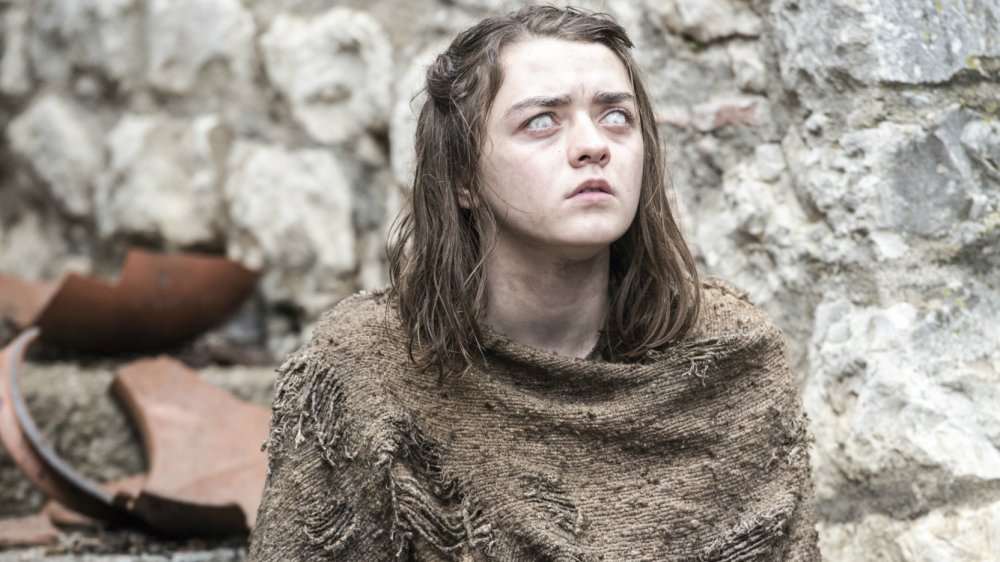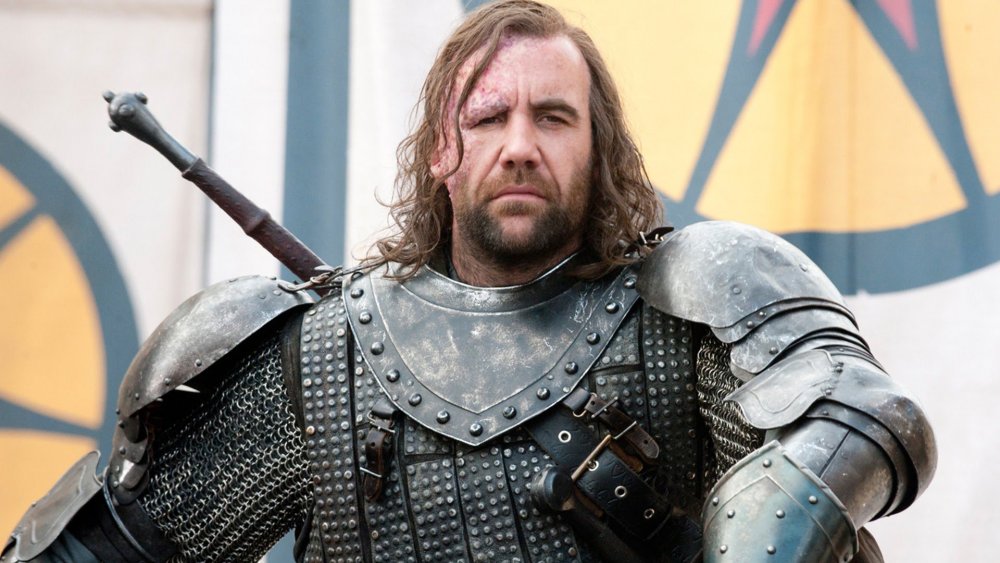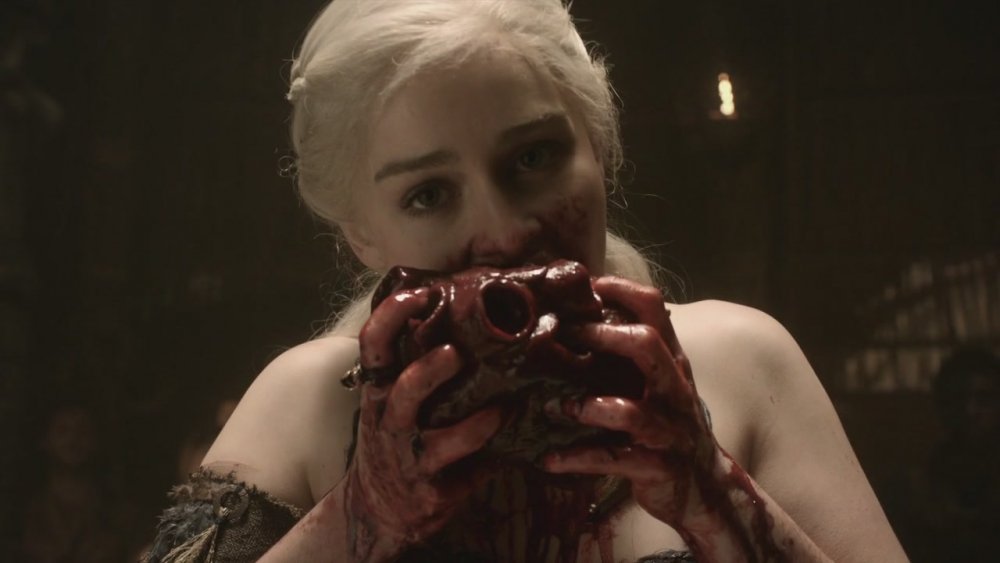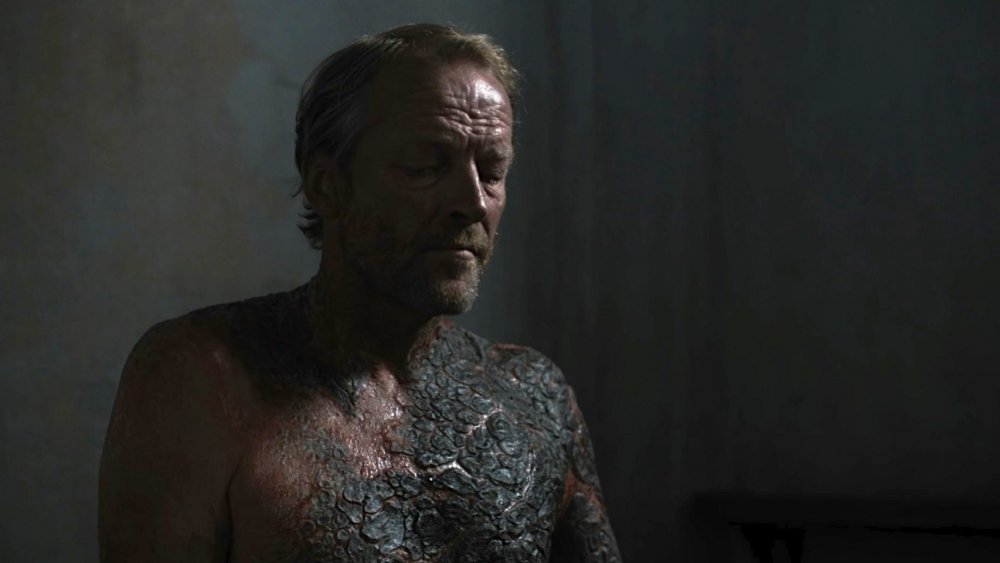What Living In Westeros Would Actually Be Like
Reading is an escape. Whatever's going on in the world around you, diving into a great book and getting lost for a while is great for your mental health. And sometimes, when the fictional world in that book is built really, really well—like, say, George R.R. Martin's Westeros—it's fun to imagine somehow magically traveling to it and living there. After all, it's so well-imagined that it's wonky climate (where seasons can last for years) might actually be scientifically possible.
There's no shame in that kind of daydream. But just like when people imagine past lives and are somehow always a king or wealthy aristocrat, people make the mistake of thinking they'd be sitting on the Iron Throne or sipping wine in the water gardens of Dorne. If you actually could live in Westeros, chances are your life wouldn't be quite so wonderful.
Martin based his fictional universe on the late medieval period of Western Europe, taking a lot of inspiration from the Wars of the Roses, which took place in the late 15th century and are sometimes regarded as the end of the Middle Ages. That period of history was exciting and romantic in some ways—if you were rich and powerful. For the vast majority of humanity, it was a miserable time to be alive. Odds are here's what living in Westeros would actually be like.
Your life in Westeros would be pretty short
Westeros is a pretty violent place. First of all: Dragons. Also: Zombies. And: Almost constant war. Throw in a Red Wedding or two and you've got a place where your expected lifespan is going to be pretty disappointing (to you).
Even if you remove horrifying fire lizards flying over King's Landing and indiscriminately burning thousands of people alive while a demented Targaryen princess cackles about breaking chains, Westeros is still going to be pretty bad for your health. As SyFy points out, the lack of basic sanitation and medical science in Westeros would kill you pretty quickly even if you somehow managed to survive birth and childhood—think about the tiny scratch that kills Khal Drogo. It's estimated that life expectancy in the Middle Ages was about 33 years.
This might be surprising because most of the characters we love in the books and the show die via deliberate murder, battle, or the aforementioned flying fire lizards—but that's because Martin concentrates on the rich and the powerful in his story. If you're a peasant, it's much worse. As Time's Westeros Death Calculator hilariously makes clear, if you're a peasant woman in the King's Landing area, your life expectancy is ... 1 year.
You'd be hungry, uneducated, and mostly confused
In part because of the story's focus on rich nobles who have access to the Maesters and their ravens, Westeros might seem like a coherent and rational place to us. But in the real-world Middle Ages, most people were illiterate and unaware of world events. There was no internet, no newspapers, and life was such a constant battle for survival no one had time to wonder about what was going on further than a mile from their home.
Worse, as Tor notes, Westeros as a nation is run absolutely terribly. The continent has been largely unified for centuries by the time the story begins, and yet it has almost zero infrastructure beyond some rudimentary roads, its central government is quite weak and only firmly in control of the immediate area around King's Landing, and like most hereditary monarchies the nation's fate is extremely sensitive to insane and/or incompetent sovereigns.
In other words, there's no education system, and as a peasant or even a low-level aristocrat you'd be more or less on your own for every aspect of your existence. Which means that when Winter comes—and as everyone in the story reminds you every few pages or so, Winter is most definitely coming—the rich people are going to close the doors to their keeps and wait it out while you're left scrabbling in the snow for something to eat.
There'd be very little justice or equality in Westeros
Medieval societies like the one presented in Game of Thrones are only an attractive daydream destination if you imagine yourself as one of the powerful. If you're a Lannister, life might not be so bad. At least you get to eat well and sleep in a warm bed.
But as Slate notes, one thing is clear from the story and from history: There's almost zero social mobility in Westeros. In the modern age, the idea that being smart and motivated is enough to move up in life is prevalent, but in Westeros even if you're born a very bright peasant, you would still have no access to education and have very few career choices as a result. That coupled with spending almost all of your waking hours desperately trying to feed yourself would stop you from achieving any sort of upward mobility, even if the elites would allow it. (Spoiler: They would not.)
There's also very little physical mobility. If you're born in an awful place—say, Craster's Keep—you're pretty much doomed to die there. If you want to move to a nicer place—say, Dorne, or Highgarden—your only choice would be to walk or ride there. Along the way, expect to be assailed by bandits and to struggle in general to survive. Your reward? You're most likely scorned as a foreigner upon arrival, with no guarantee of employment or sustenance.
You'd probably be a farmer
You might want to imagine you'd be a rich, powerful member of a significant house in Westeros, scheming and fighting for the Iron Throne. In reality, chances are very, very good that you'd be a farmer.
As Investopedia explains, Westeros is an agrarian economy—and a primitive one at that. Just about every inch of arable land has to be farmed in order to feed the population, with priority going to the nobility and their armies, of course. In fact, you probably wouldn't even own the land you work—your lord would own it, and the food you produced. It would be in their interest to keep you alive, of course—but just barely.
Don't want to farm? While there are other options—fisherman or tradesperson (like a blacksmith), for example—those are much rarer and might require you to be born into the trade. Your other options are limited. You could be a soldier and risk your life in the Game of Thrones, a pirate or bandit, and of course a prostitute—or a slave if you're found wandering around without the protection of a lord. Since the economy is primitive, even if you have ideas, there is no way to borrow money or invest in businesses or do anything other than scrabble for daily survival.
You'd be powerless in Westeros
If you're not lucky enough to be born into a noble house or to stumble onto a cache of dragon eggs, you should get comfortable with having zero agency. There's no voting in Westeros, and zero access for normal, regular folks to enter government in any significant way.
In fact, as The Week points out, the ending of the series makes it very clear that rather than moving towards any sort of democratic revolution led by Daenerys Targaryen that frees and empowers the people, Westeros ends up as an oligarchy. A small number of powerful people essentially choose the next king from among their number—and no one who doesn't control an army and significant land holdings has any say in it whatsoever.
So, if you're a normal person in Westeros—assuming you just survived a series of wars, several short reigns by unstable child kings, an invasion by White Walkers, and a couple of dragon-powered massacres—you have no say. Considering how primitive the communications are, it's probably some months later that you discover your king is now some guy you've never heard of named Bran the Broken. Who probably has no idea what your concerns are, and wouldn't care if he did.
Magic wouldn't save you
Even if you stipulate that your life in Westeros as a normie would probably be pretty terrible, you might imagine you have an ace card: Magic. It's a fantasy universe, after all. If it's as miserable and awful as our own Middle Ages were, at least you can learn some magic spells and become powerful that way.
Except, as noted by The Atlantic, one of the unique aspects of Martin's universe is how unreliable and sketchy most magic is. While there are clear moments where magic actually works, including shadow assassins, people wearing other people's faces, and at least one unexpected resurrection from the dead, there are just as many examples of magic not working as expected—or not working at all.
That may be because there really is no magic, after all. As Esquire explains, one of the most fun theories about the books is that the Game of Thrones universe is not a fantasy setting at all—but a post-apocalyptic science fiction setting where ancient technology is left behind. That technology is so far advanced it appears to be magic to the primitive, uneducated survivors. They don't have the operating manuals, so they're essentially pushing buttons randomly until something happens, and calling it magic. There's no way to know if that's what Martin will ultimately reveal—but even if it is, the fact remains that magic won't save you, because it's almost useless.
Your life would be planned out
The question "what do you want to do with your life?" causes a lot of us stress and anxiety, but we should be grateful we get asked the question in the first place. If you're born in Westeros, chances are you have zero choice.
First of all, if you're born a peasant, that's pretty much your career description. If you're born into a trade, your chances of doing something different are similarly zero. By the time you're old enough to understand what it is your parents do for a living, you will also know exactly what you'll be doing for a living.
If you're hoping to be born into a noble family and thus have the wealth and educational opportunities to do whatever you want, think again. As the Digital Citadel notes, it's the same for the aristocracy, it's just that the job descriptions are different. Older sons will spend their time learning warcraft and statecraft so they can take over their lands when their father dies. Younger sons might become Septs or Maesters. And the ladies of the family will be trained in feminine skills like needlepoint. But all of them would have their roles chosen for them by their parents, and there's almost no chance of rebelling and doing something else.
You'd never know what was happening in the rest of Westeros
In our modern world the most common problem we have with current events and news is information overload—too much data coming from too many sources. In Westeros, you'd certainly have the exact opposite of that problem. Knowing anything about events outside your immediate area would be almost impossible.
First of all, the information superhighway in Westeros is ... ravens. Okay, as Time points out birds have been used in our own world to ferry messages, and such avian networks can actually be quite sophisticated and effective. That doesn't mean that getting your news via raven is a good idea. And if you insist on a bird-based data transfer system, ScienceAlert reminds us that ravens are actually a terrible choice—pigeons would be a vastly superior choice, though much less cool.
Second, as The Conversation notes, that system of ravens is controlled by the Maesters. It's not like any grubby peasant can just grab a raven and send a note off into the air. And ravens are also a pretty narrow communication vector—there's no broadcast option. That means you'd only hear about momentous events long after they happened, and you'd spend most of your time in ignorance. Which considering what's on social media these days sounds kind of great.
Your kids wouldn't be better off
Most people expect their kids to have better lives than they did. We work hard to send our kids to school and to ensure they have access to every opportunity. At the same time, technological and scientific advances mean that life gets easier, longer, and healthier with every passing year.
Yeah, in Westeros—not so much. As The Take notes, the history of Westeros goes back thousands and thousands of years, and there has been exactly zero technological advancement in that time. Westerosi culture is to blame—aside from the presence of magic, which deters scientific investigation while being just unreliable enough to keep everything terrible, there's also the concentration of knowledge among the Maesters and the lack of an education system.
As Forbes notes, Westeros is also impoverished. Sure, if you're a Lannister you might not notice, but for just about everyone else Westeros is dirt poor. No one outside the ruling class has any money, and there's nothing to buy anyway. As a result, there's no way for any sort of technological development to happen, with the possible exception of enormous dragon-killing crossbows. With such a static society, there's little reason to think that the world would be any better for your kids. In fact, once Winter and its accompanying White Walkers arrive, there's every reason to think it will be much, much worse.
You'd be defenseless against everything in Westeros
Being a knight on horseback in a medieval setting is essentially being a living War Machine. A few hundred pounds of armored force, these warriors weren't always honorable or under the control of their liege lords—as History explains, knights had a tendency to loot and murder innocent civilians when they weren't serving on the battlefield. Things got so bad the whole concept of chivalry was invented essentially to stop knights from killing all the peasants.
So if you're a peasant farmer struggling to survive and a rogue knight like the Hound shows up, you would essentially have no chance against him. As Today I Found Out explains, being a mounted knight in medieval times required tremendous physical strength and endless training. You couldn't just hop on a horse and wave a sword around. If you're unarmed and the Hound wants your chickens, for example, it's pretty certain the Hound will have your chickens, and if you stand in his way, you'll be dead.
Since there's no equalizing force of violence like gunpowder, which can pierce armor and knock someone like the Hound down from a distance, you'd be essentially defenseless against bandits and rogue knights. Sure, there are bows and arrows, but these weapons also take great skill to deploy effectively, and wouldn't be as useful against armored attackers. Since there's also no police, good luck not being killed all the time.
The food in Westeros would be pretty gross
When you imagine yourself living in Westeros, you're effectively imagining yourself living in the medieval era. When people imagine themselves living in the past, they often concentrate on the idea of "simpler times" or the glamorous fashions. They forget about the downsides, like the lack of modern medicine—or the lack of cheeseburgers.
As Huffpost points out, a lot of the food eaten in the Middle Ages was downright weird and/or disgusting. Some of the weirder stuff includes Live Frog Pie, which is—inexplicably—exactly what you think it is, and cow's stomachs. While the TV show made some of those royal feasts look pretty appetizing, Westeros has plenty of really, really gross food right there on the page. As IO9 notes, some memorable dishes from the books include pigeon pies, snake sauce, and jellied calf's brains.
And those off-putting meals are what to expect if you're rich. If you're poor—and you probably would be in Westeros—your diet would be pretty bad. Consider the legendary "bowl of brown" found in the Flea Bottom slums of King's Landing. Essentially the dregs of stew pots, any time food is described simply by its color you're in trouble.
You'd have a wild variety of diseases
The only time people get sick in stories is when it serves the plot, which makes everyone living in Westeros seem perfectly healthy. But a medieval society like Westeros would be a very exciting celebration of horrifying diseases.
As the Encyclopedia Britannica notes, the Middle Ages on Earth were marked by many, many epidemics, including (but not limited to) plague, the Black Death, leprosy, smallpox, scabies, anthrax, the Sweat, and the delightfully named Dancing Mania. Since there was almost zero medical or biological knowledge at the time, the main defenses against these diseases were isolation and evacuation. Aside from infectious diseases, ones like scurvy that stemmed from nutritional deficits would have been common, as would venereal diseases like syphilis.
As MDLinx notes, Westeros adds a few more potentially deadly diseases to the list, including Greyscale, which slowly calcifies the skin, and the Pale Mare, which is essentially dysentery. Although a laborious treatment for Greyscale is offered in the Westeros universe, it's unlikely to be something poor folks could afford, and there's little indication that any of these other diseases would have any sort of treatment. Medical science is far too focused on bringing enormous dead knights back to life to worry about curing or effectively treating diseases, which means you'd be sick basically all the time until the sweet release of death.
